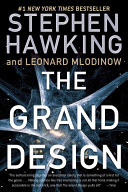The Weak Anthropic Principle
Our very existence imposes rules determining from where and at what time it is possible for us to observe the universe. That is, the fact of our being restricts the characteristics of the kind of environment in which we find ourselves. That principle is called the weak anthropic principle. (We'll see shortly why the adjective weak" is attached.) A better term than "anthropic principle" would have been "selection principle," because the principle refers to how our own knowledge of our existence imposes rules that select, out of all the possible environments, only those environments with the characteristics that allow life.
Though it may sound like philosophy, the weak anthropic principle can be used to make scientific predictions. For example, how old is the universe? As we'll soon see, for us to exist the universe must contain elements such as carbon, which are produced by cooking lighter elements inside stars. The carbon must then be scattered through space in a supernova explosion, and eventually condense as part of a planet in a new-generation solar system. In i96i physicist Robert Dicke argued that the process takes about lo billion years, so our being here means that the universe must be at least that old. On the other hand, the universe cannot be much older than lo billion years, since in the far future all the fuel for stars will have been used up, and we require hot stars for our sustenance. Hence the universe must be about lo billion years old. That is not an extremely precise prediction, but it is true—according to current data the big bang occurred about 13.7 billion years ago.
As was the case with the age of the universe, anthropic predictions usually produce a range of values for a given physical parameter rather than pinpointing it precisely. That's because our existence, while it might not require a particular value of some physical parameter, often is dependent on such parameters not varying too far from where we actually find them. We furthermore expect that the actual conditions in our world are typical within the anthropically allowed range. For example, if only modest orbital eccentricities, say between zero and 0.5, will allow life, then an eccentricity of o.i should not surprise us because among all the planets in the universe, a fair percentage probably have orbits with eccentricities that small. But if it turned out that the earth moved in a near-perfect circle, with eccentricity, say, of 0.00000000001, that would make the earth a very special planet indeed, and motivate us to try to explain why we find ourselves living in such an anomalous home. That idea is sometimes called the principle of mediocrity.
'he lucky coincidences pertaining to the shape of planetary or3its, the mass of the sun, and so on are called environmental because they arise from the serendipity of our surroundings and not from a fluke in the fundamental laws of nature. The age of the universe is also an environmental factor, since there are an earlier and a later time in the history of the universe, but we must live in this era because it is the only era conducive to life. Environmental coincidences are easy to understand because ours is only one cosmic habitat among many that exist in the universe, and we obviously must exist in a habitat that supports life.
Notes:
A quick definition and explanation of this theory of why we live in a universe where we could emerge.
Folksonomies: evolution philosophy creationism origins
Taxonomies:
/science/phyiscs/atomic physics (0.457070)
/science/physics (0.455125)
/science/social science/history (0.294713)
Keywords:
weak anthropic principle (0.926648 (negative:-0.520159)), universe (0.417199 (positive:0.200579)), physicist Robert Dicke (0.329258 (neutral:0.000000)), modest orbital eccentricities (0.323497 (neutral:0.000000)), physical parameter (0.314116 (positive:0.371548)), extremely precise prediction (0.312145 (negative:-0.291233)), anthropically allowed range (0.303059 (neutral:0.000000)), selection principle (0.285723 (neutral:0.000000)), anthropic predictions (0.268842 (positive:0.371548)), quick definition (0.234688 (negative:-0.679065)), better term (0.226823 (positive:0.407943)), supernova explosion (0.224624 (negative:-0.357927)), lucky coincidences (0.224489 (positive:0.487339)), scientific predictions (0.221336 (negative:-0.358916)), near-perfect circle (0.220565 (neutral:0.000000)), lighter elements (0.219715 (neutral:0.000000)), big bang (0.217878 (negative:-0.454909)), current data (0.217629 (negative:-0.454909)), Environmental coincidences (0.217594 (neutral:0.000000)), possible environments (0.216951 (neutral:0.000000)), particular value (0.215450 (neutral:0.000000)), hot stars (0.214356 (positive:0.382467)), planetary or3its (0.213687 (positive:0.487339)), anomalous home (0.213606 (negative:-0.559376)), actual conditions (0.212907 (neutral:0.000000)), era conducive (0.212665 (neutral:0.000000)), fundamental laws (0.212120 (neutral:0.000000)), fair percentage (0.210110 (positive:0.377209)), environmental factor (0.208070 (neutral:0.000000)), special planet (0.207433 (neutral:0.000000))
Entities:
Robert Dicke:Person (0.739273 (neutral:0.000000)), solar system:FieldTerminology (0.673620 (neutral:0.000000)), physicist:JobTitle (0.667049 (neutral:0.000000)), billion years:Quantity (0.667049 (neutral:0.000000)), 13.7 billion years:Quantity (0.667049 (neutral:0.000000))
Concepts:
Universe (0.973673): dbpedia | freebase
Rare Earth hypothesis (0.730429): dbpedia | freebase
Earth (0.654884): dbpedia | freebase
Physical cosmology (0.604926): dbpedia | freebase
Planet (0.600030): dbpedia | freebase | opencyc
Dark energy (0.569818): dbpedia | freebase
Anthropic principle (0.567429): dbpedia | freebase | yago
Solar System (0.553166): dbpedia | freebase | opencyc





